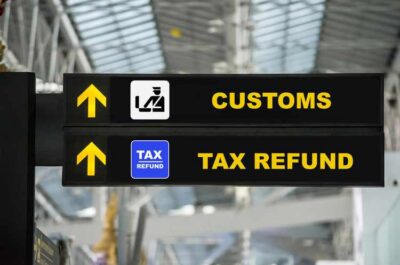The recovery of foreign VAT is still an extremely complicated and tedious process. The 10 points below help to add clarity to this process and enable you to better navigate this complex challenge.
Since January 1st 2010, recovery claims for VAT invoiced in the European Union have been lodged electronically; however for countries outside of the European Union, the paper procedure is still valid.
These variations mean that unfortunately the recovery of foreign VAT is still an extremely complicated and tedious process.
We hope that the 10 points below help to add clarity to this process and enable you to better navigate this complex challenge.
1) Change of the place where tax is imposed for the invoicing of services
Since January 2010 most intra-EC services are invoiced exclusive of tax. Recipients of invoices from foreign suppliers should self-assess the VAT on their own VAT declarations. If the company nevertheless does have to bear foreign VAT on some purchases of services, it has the opportunity of recovering it.
2) VAT on travel expenses
All expenses linked to travel remain subject to VAT. Companies should recover the corresponding tax from the tax authority of the country in which the expense was paid. However, as the new directive 2008/8/EC has not harmonised the deduction rights, each country has its own deductibility rules and rates. For example, in France, VAT on hotel expenses is not recoverable for employees (whether they are away on assignment or at a tradeshow or conference) whereas it is recoverable for third parties. It is also deductible for meals at restaurants. In the United Kingdom, the rule is the opposite: VAT is deductible for employees but is not for guests, and in Germany it is deductible whoever the recipient may be.
3) What is the economic cost?
These expenses should not be neglected as they represent a significant economic factor that can reach up to 27% of the amount spent abroad. VAT rates continue to increase in Europe with today’s average being 21%. Work-related travel is the third highest expense item for companies, when production is not included, after wages and IT. From SMEs to the large groups, optimal management of this budget is of great importance.
4) The VAT recovery procedure
VAT recovery claims between EU countries are lodged electronically on the company’s local tax portal which forwards the claims to the relevant refund country. For claims to non-EU countries the applicant company must still send the original paper receipts/invoices. A completed application form, as well as any additionally required documents, directly to the tax authority in the refund country. Both procedures require a detailed listing of the invoices/tax receipts to be made.
5) Rules to be followed
– Be very precise in the reimbursement request and in particular understand the service quoted on the invoice to make a correct entry of the nature of the services, which determines whether it is deductible.
– Check the compliance of the supporting documents, as each country has its own requirements on this matter; if necessary have the foreign supplier correct them.
– For European Union countries: complete correctly all the 12 fields in the electronic form for each supporting document know which documents to append (translations may be required) and scan some receipts according to the amount of the VAT.
For non-EU countries: present the claim in the form of a paper file with the original expense claims and suppliers’ invoices.
– Transmit the claims before 30 September of the following year for EU countries and before 30 June for non-EU countries.
– Ensure that the foreign authorities have safely received the claim.
– Reply to potential questions from the authorities in the language of the country and within the timescale determined.
6) What should be done in the event of a refusal?
When the foreign fiscal administration refuses the claim, the company concerned can sometimes submit a new claim with the missing information and even, in some cases, bring the issue before foreign courts.
7) What is the timescale for processing?
The new regulatory arrangement has reduced the processing period from six to four months. However, in practice, many administrations still take much longer than this. If the tax authorities request additional information, the timescale can be extended up to 8 months. Some countries do not respect these timescales and they can reach up to a year or two. In the event of a delay, payment of moratory interest is provided for in the legislation.
8) How can this VAT recovery be integrated into the company’s accounts?
Companies manage VAT reimbursement according to their own rules: broken down according to the type of expense or reported in a general manner as exceptional income.
9) Receive support
Some service providers who are specialists in VAT recovery offer support for companies going through the process. With experience behind them, these companies can manage the recovery process from beginning to end and generally will know all the workings of the foreign tax authorities.
10) Utilise expense claim management solutions
An expense claim management system would be extremely beneficial, giving organisations complete visibility of all staff expense notes and of the related throughput. Implementations of such a system would also facilitate the recovery of the related VAT.
Theodore is the Co-Founder and Managing Editor of TravelDailyNews Media Network; his responsibilities include business development and planning for TravelDailyNews long-term opportunities.






































































































































































